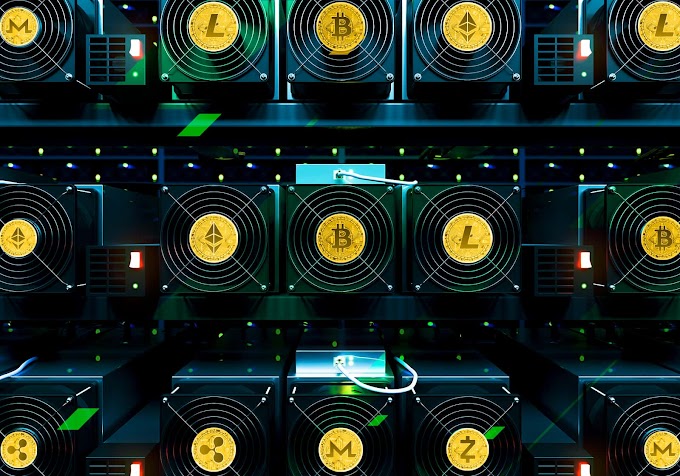With the increasing demand for services and products offered on the Internet, the mode of payment has acquired new norms. Online shopping is already a part of the daily routine of many consumers around the world. 
image by google.com
According to the Brazilian Electronic Commerce Association (ABComm), in Brazil, the e-commerce segment is the fastest growing in recent years. In this scenario, blockchain is gaining more and more position as the future promise of payments and financial transactions.
As with every innovation that destroys traditional business models, speculation is already starting to emerge about ways to regulate the technology in Brazil.
Examples are Uber, which affects transportation services, Airbnb hotel services, the Netflix TV industry, and now blockchain with the promise of revolutionizing financial systems, credit card services, security camera operations. compensation and others.
Dealing with digital payments poses many concerns to the online consumer, one of which is the privacy of bank information and personal data.
In this scenario, a page that states security and reliability will certainly ensure more sales and less cart abandonment.
Technological advances are moving rapidly towards preventing fraud and preventing sensitive data from being misinterpreted. This is where, for example, the blockchain appears.
Twitter CEO Jack Dorsey has described blockchain as "the next big breakthrough", a technology that is generally applicable in accounting terms but has the potential to be "much more applicable".
The potential of blockchain for marketplaces is enormous and could transform existing business models, so companies large and small have invested their time and money in improving the infrastructure of the payments industry.
Blockchain is based on a new trust protocol. The technology enables instant transfer of values between users of the platform, without the need for intermediaries to ensure transparency in transactions.
The technology has the potential to break paradigms, particularly in the financial market, as it establishes a direct path between operators, preventing fees and agent interference.
A blockchain is a type of chain of blocks of secure transactions that travel through a network in which people with a common business interest make up these blocks.
One of the great advantages of the system is the ability to record the entire history of operations. Thus, detailed data of those involved in transactions and block verification is available to users.
Blockchain also allows traceability, a new block is created only with valid transactions from the previous block. Thus, when a new transaction chain emerges, it is born with a 100% reliable track record, certainly solving one of the most important issues in today's financial operations.
Blockchain: the future of digital payments
By taking a closer look at this system, you can better understand the many possibilities for the future of digital payments. Check out some blockchain features:
efficient certification
Blockchain allows two people who do not know each other to transfer money between themselves without the need for an intermediary bank to guarantee the validity of the payment. The system itself uses advanced encryption and a network of connected users (called miners) to check and confirm that all is well with that transaction before proceeding.
scalable technology
Contrary to what some people think, despite what emerged with bitcoin, the technology behind the blockchain is not tied to this or any other digital currency. The expectation of the market is that innovation is increasingly present in various sectors and industries and all areas that use digital payments have been revolutionized.
blockchain application
The sophisticated level of authentication and security added for ease of implementation in other scenarios make blockchain a promising option for both the public and private sectors. Many countries and companies are already looking at this technology.
Blockchain is already a reality at major world banks, despite operating independently from another institution. Working with bitcoin generates low costs and eliminates the banking costs that currently exist, besides making it possible to make unique and completely secure transactions, which are impossible to make. In recent years, banking institutions have invested millions of dollars in this new currency.
Canada's largest bank, Royal Bank of Canada (RBC), is testing blockchain technology to transfer funds to and from the US, according to the bitcoin portal.
The bank's executive vice president, Martin Wildberger, told Reuters that this allows the bank to monitor payments in real time as they pass between US banks and Canadian banks, with the added benefit of streamlining transactions and lower costs. with.
Because blockchain applications are not just about banking, businesses and governments are investing in the technology as well.
Honduras and Greece, for example, intend to adopt the possibility of creating new land registration systems, eliminating the problems of deed fraud and lack of regulation. The NASDAQ, the world's second largest stock exchange, is also expected to soon implement a blockchain-based system for recording transactions between private companies.
When applied to international payments, benefits include real-time settlement and replacement or replacement of traditional banking correspondence – making the process faster and less expensive.
Enthusiasts believe that blockchain may replace systems for regulating contracts between parties in the future. This would include, for example, the replacement of notary offices with blockchain systems, which would automatically authenticate documents.
This shows that technology has what it takes to become the future of digital payments. With the improvement of technology, security levels, which are already very high, will become virtually impenetrable.
The financial market is also in a race to set the standard for this technology. The great thing about this is that the banks themselves are setting the standards, creating the technology and making it available free of cost for use in the market.
An example of this is JPMorgan, one of the largest institutions in the world, which implemented its vision of this technology and made it available with open source code to be developed with the entire world community.
And you, have you ever heard of this technique? How do you think blockchain could affect the future of digital payments? Share your comment with us and join the conversation.




